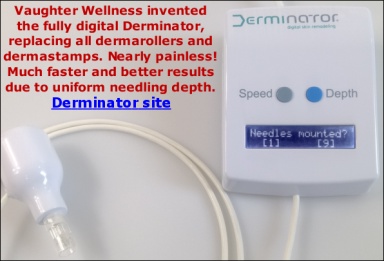News:
This forum has been read-only for years because giving personalized medical advice is unlawful for us unless there is a doctor-patient relationship. Also, when we started this forum we were a tiny company - but now we're the largest dermaneedling company in the western world. Use the search function above this text and you might find the answers you're looking for, since nearly every imaginable question has already been answered by us here. If you need support with an order, please file a ticket at https://owndoc.shop/support but remember that we can't answer questions on how to use our products or which product to buy, since that's already answered in great detail at https://owndoc.shop/_Manuals.

Please only post questions when you could not find the answer searching this forum or our instructions. Pre-and post-sales questions about our products only. Thank you!
Pages: 1 Go Down
Pages: 1 Go Up




